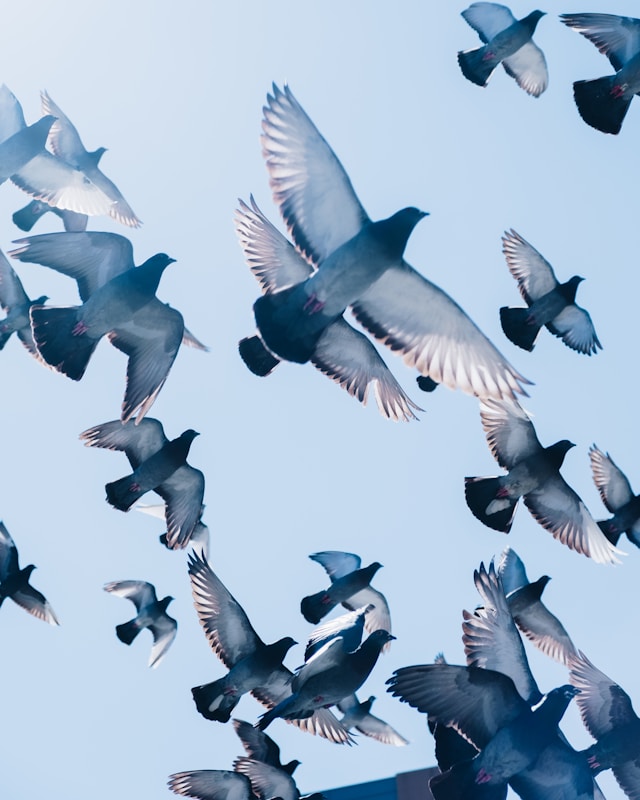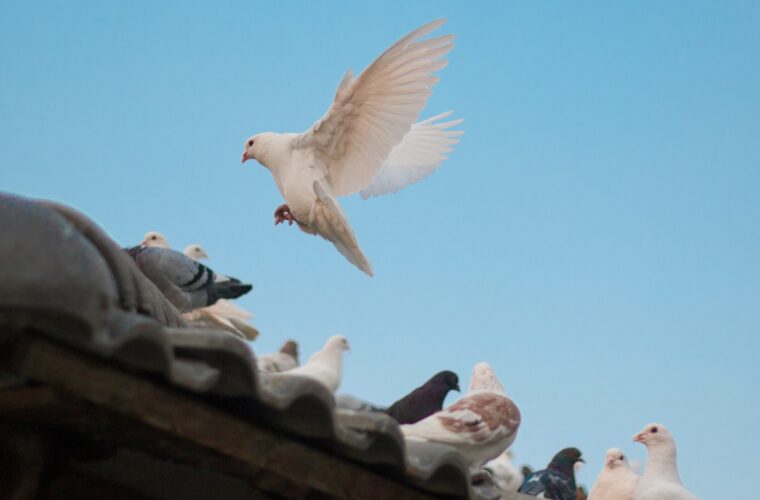Are you curious about what pigeons symbolize? Pigeons are one of the most common birds found in cities and towns around the world. While they may be seen as a nuisance to some, they hold a rich history when it comes to symbolism. Different cultures and religions have revered pigeons for various reasons throughout time.
In many cultures, pigeons are symbols of peace. The story of Noah’s Ark describes a dove that flew from the ark and returned with an olive branch in its bill, signaling the end of the time of hardship for the ark’s inhabitants. This story has led to the association of pigeons with hope, peace, and new beginnings. Pigeons are also known to mate for life, making them symbols of fidelity and loyalty.
In addition to peace and loyalty, pigeons are also associated with fertility, prosperity, and luck. Some cultures believe that if a pigeon lands on your windowsill or roof, it is a sign of good luck. Pigeons are also known for their ability to adapt to different environments, making them symbols of flexibility and resilience. Whether you see pigeons as pests or fascinating creatures, their symbolism is worth exploring.

Historical Significance
Pigeons have been around for thousands of years and have played a significant role in human history. In this section, we will explore the historical significance of pigeons in different contexts.
Religious Context
Pigeons have been mentioned in various religious texts and are considered sacred in many religions. In Christianity, pigeons are associated with the Holy Spirit and are a symbol of peace and love. According to the Bible, when Jesus was baptized, the Holy Spirit descended upon him in the form of a dove. Since then, pigeons have been associated with the Holy Spirit and are often depicted in religious art.
Similarly, in Hinduism, pigeons are associated with the goddess of love and fertility, Kamadeva. It is believed that Kamadeva had a parrot or a pigeon as her vehicle, which symbolized her power and grace.
What Do Pigeons Symbolize Culturally?
So what do pigeons symbolize for different cultures? Pigeons have played a vital role in different cultures around the world. In ancient Greece, pigeons were associated with the goddess Aphrodite, who was the goddess of love, beauty, and fertility. Pigeons were considered sacred to her and were often depicted in her temples.
In Native American cultures, pigeons were a symbol of protection and were believed to bring good luck. Pigeons were also used as messengers during wartime, as they were fast and reliable.
In conclusion, pigeons have played a significant role in human history and have been associated with different meanings and symbols. Whether it is their religious significance or cultural representations, pigeons have always been a part of human civilization and continue to be so today.
Symbolism in Literature
Pigeons have been used as symbols in literature for centuries. Here are some examples of their use in classical and contemporary literature.
Classical References
In Greek mythology, pigeons were associated with the goddess Aphrodite, who was often depicted with a flock of doves. The doves were said to represent love, fertility, and beauty. In Homer’s epic poem, The Iliad, doves were also used as a symbol of peace.
In the Bible, pigeons were used as a symbol of sacrifice. In Leviticus 1:14, it is written that a bird sacrifice can be a turtledove or a young pigeon. The dove also appears in the story of Noah’s Ark, where it is sent out to find land after the flood.
Contemporary Symbolism
In contemporary literature, pigeons are often used as a symbol of urban life and the struggle to survive in a harsh environment. For example, in the novel “The Pigeon” by Patrick Süskind, the main character is a lonely, middle-aged man who becomes obsessed with a pigeon that he sees on his daily commute. The pigeon represents his own sense of isolation and longing for connection.
In the novel “The Goldfinch” by Donna Tartt, a painting of a goldfinch becomes a symbol of the main character’s loss and grief after a tragic event. The goldfinch is also associated with the pigeon, which is seen as a symbol of hope and resilience.
Overall, pigeons have been used as symbols in literature to represent a variety of ideas and themes, from love and beauty to sacrifice and survival. Their versatility as a symbol makes them a popular choice for writers and artists alike.
Pigeons in Urban Environments
Pigeons are a common sight in urban environments, where they have adapted to living alongside humans. These birds have been a part of city life for centuries, and they have come to symbolize many things in this context.
Peace and Harmony
Pigeons are often associated with peace and harmony, and they are seen as symbols of hope and tranquility in urban environments. In many cities, pigeons are fed by locals who believe that doing so will bring good luck and positive energy to the area.
Adaptability and Survival
Pigeons are also known for their adaptability and survival skills. They are able to thrive in urban environments despite the many challenges they face, such as pollution, lack of food, and exposure to predators. Their resilience and ability to adapt to changing circumstances make them a symbol of strength and perseverance.
In conclusion, pigeons have become an integral part of urban environments, and they symbolize many things in this context. Whether they represent peace and harmony or adaptability and survival, these birds are a reminder that life can thrive even in the most challenging of circumstances.




